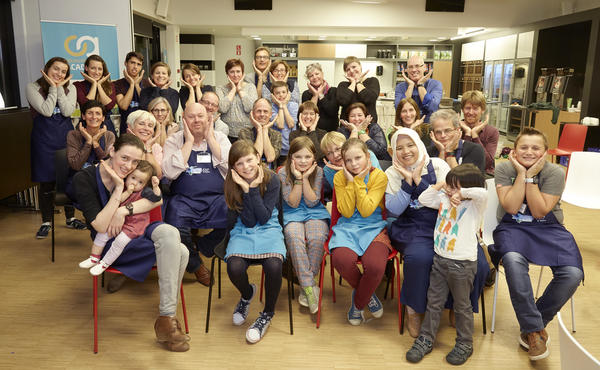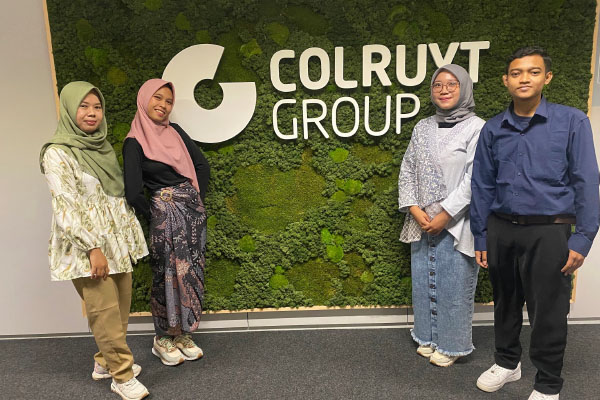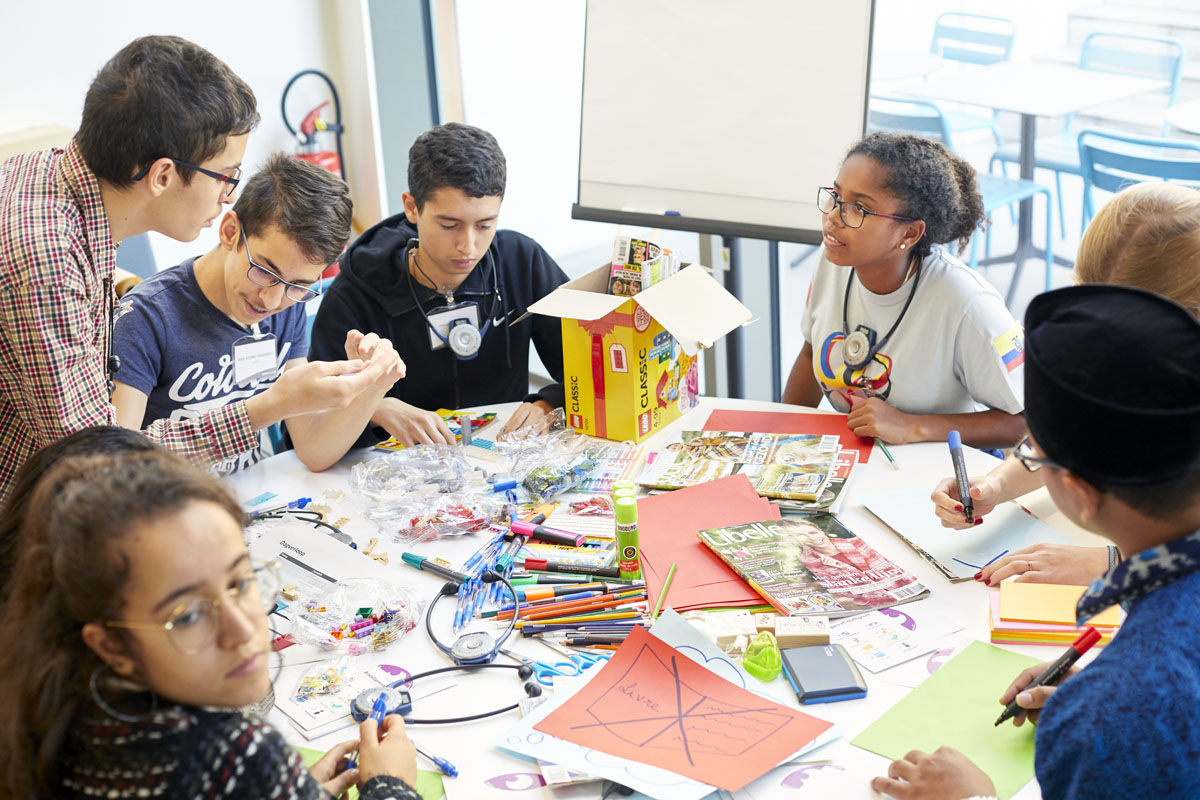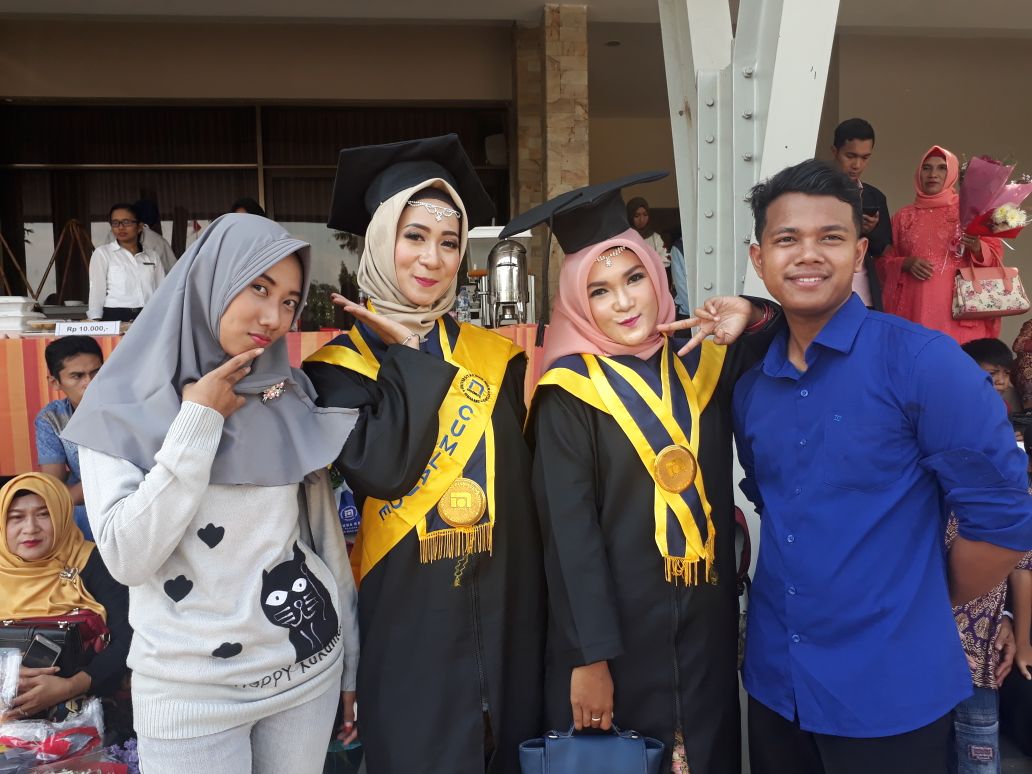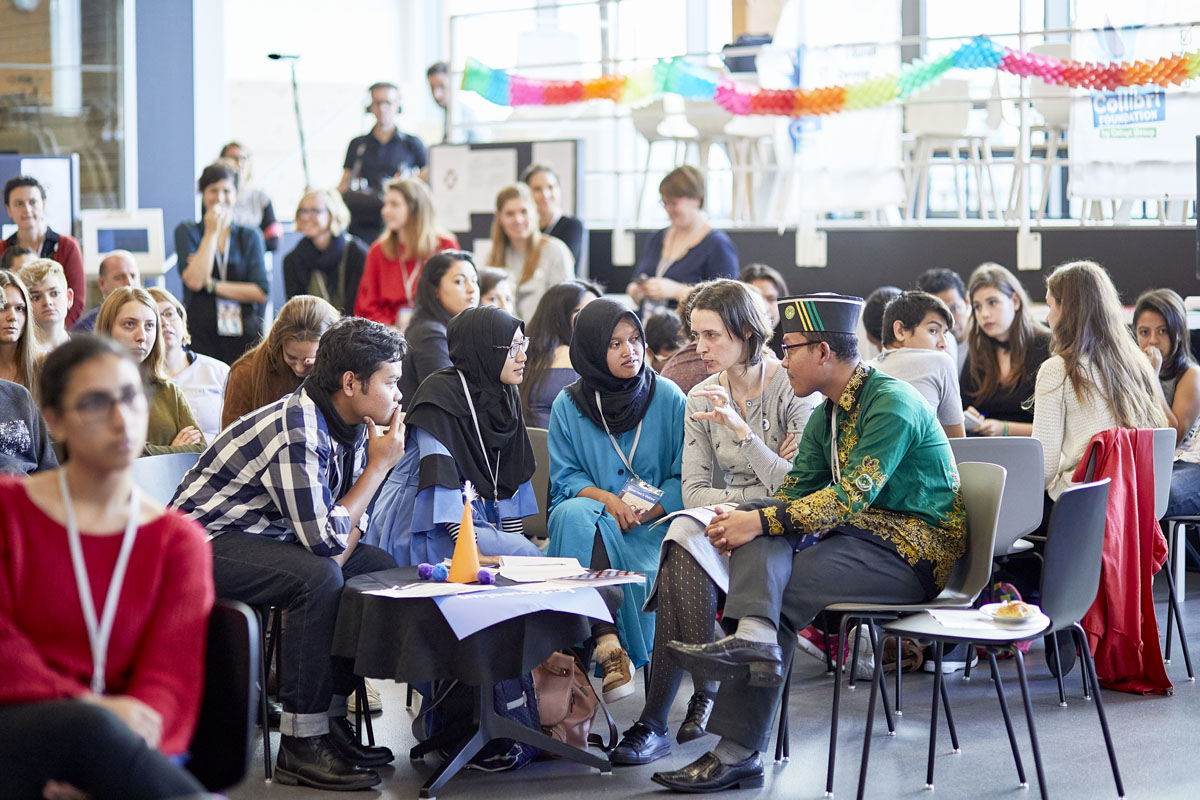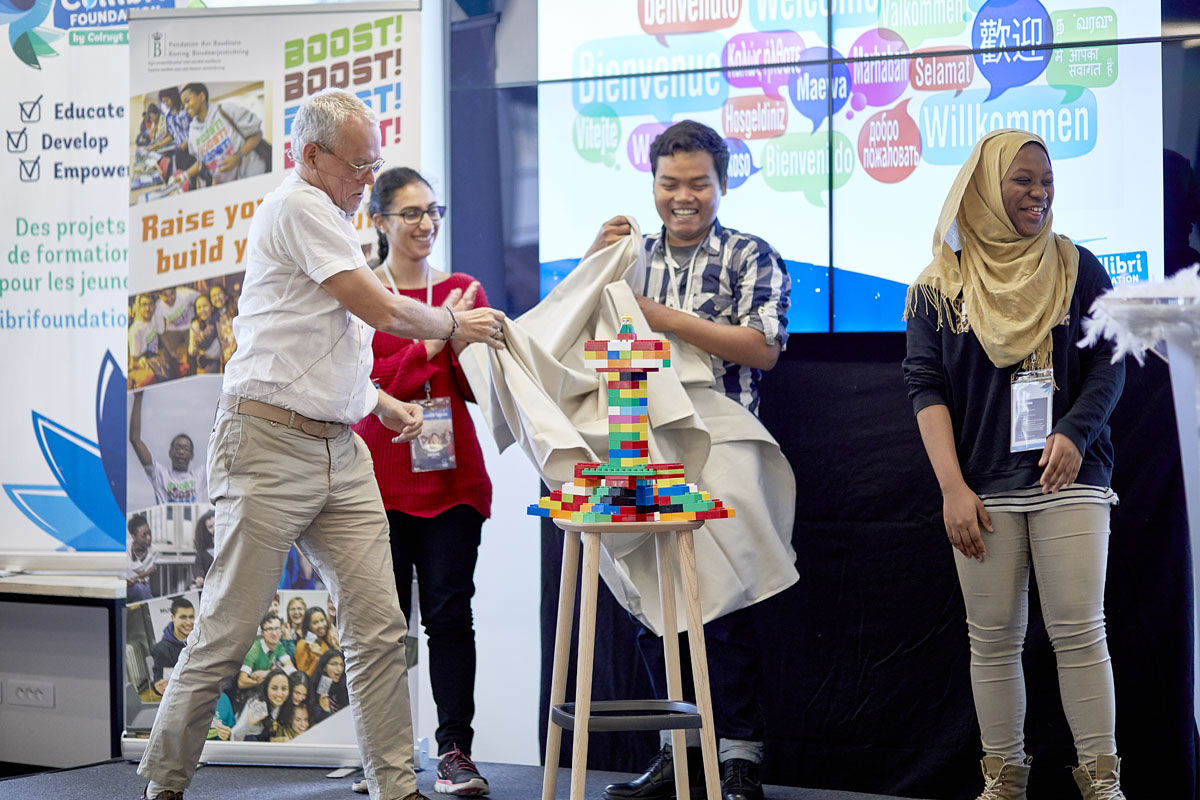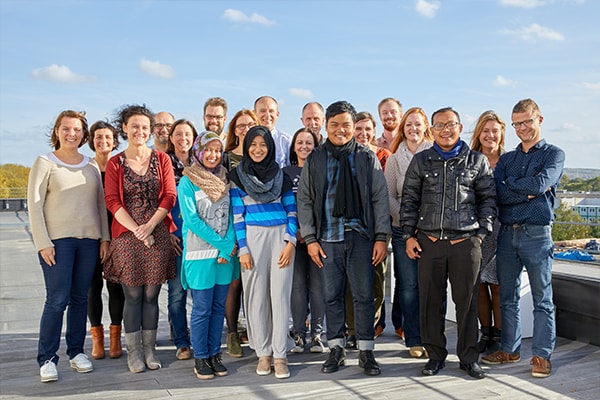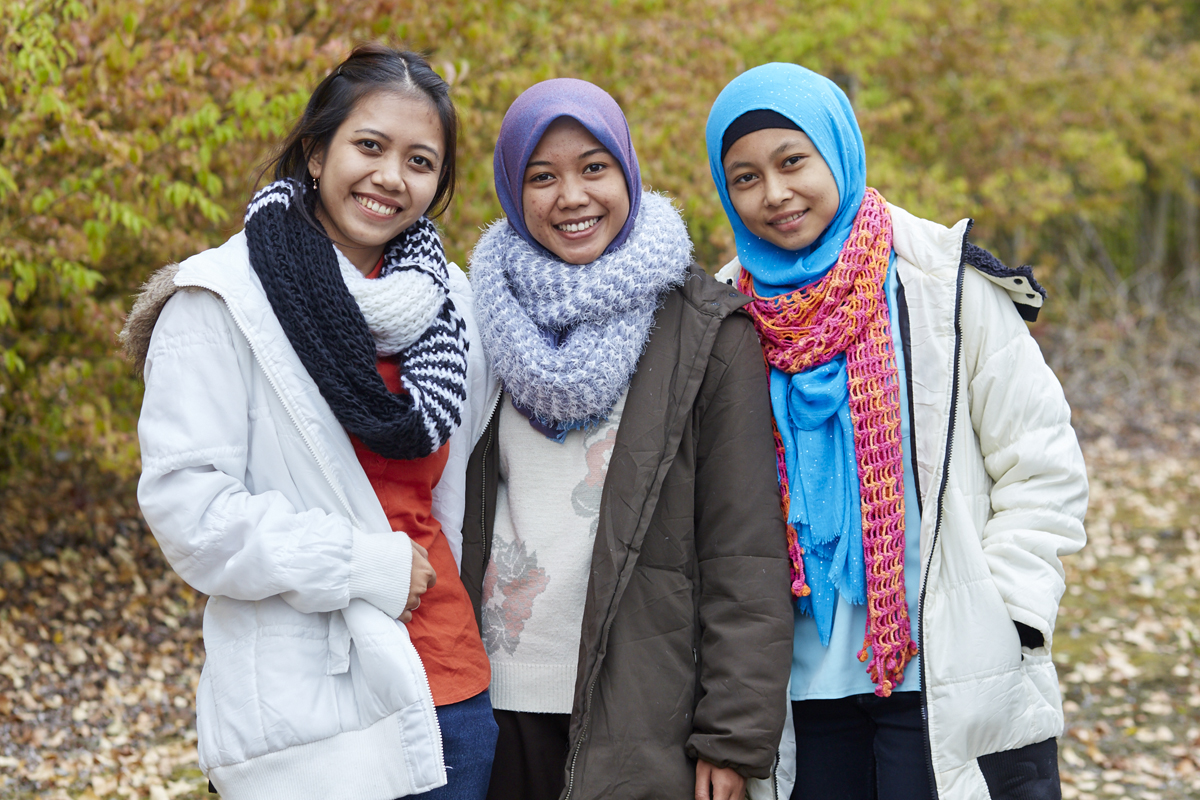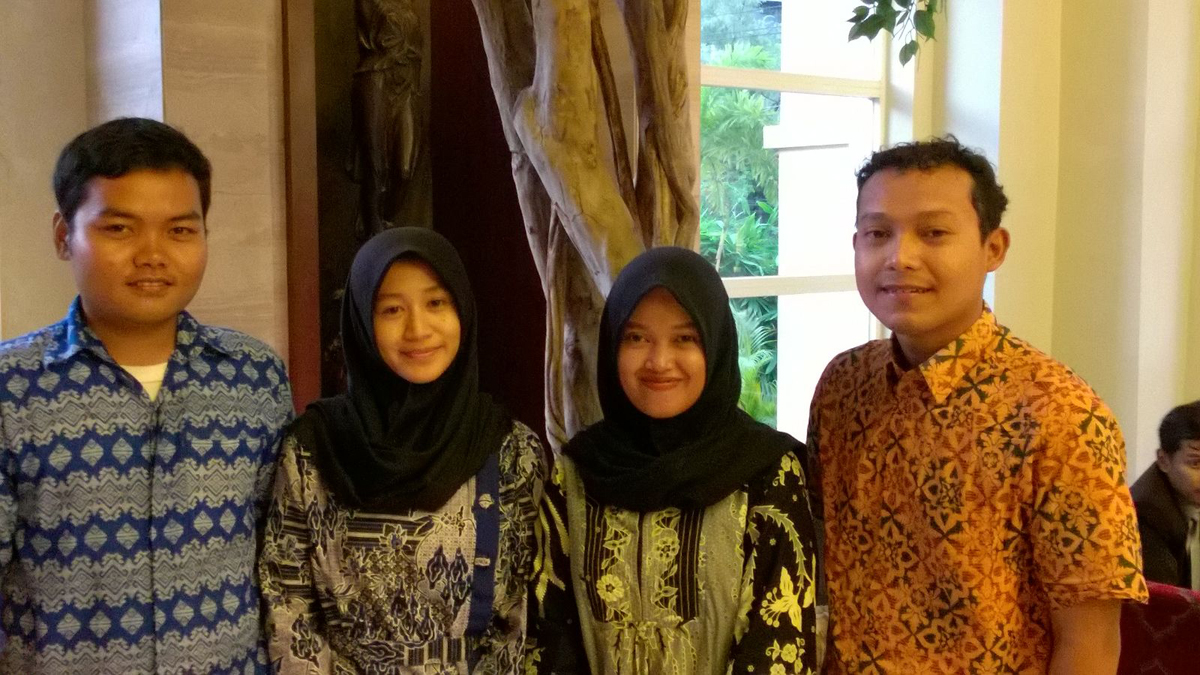Looking back on 2015
Dear all, I hope you enjoyed a nice turn of the year, in a cosy atmosphere with family and friends, with for some people the necessary peace and quiet, and for others the indispensable festivities...
Meanwhile, the first working days of the new year lie behind us and to me the first working day felt a bit like a first day of school. Perhaps this has something to do with closing off 2015, a year I will remember for a long time and with the immersion trip to Indonesia at the centre. The first six months of the year to prepare it, then the immersion trip itself and then the period afterwards to recover and spread all the impressions and experiences. In autumn, we also had the work placement, with the cooking workshop as closing part. In short: an eventful but also exciting and fascinating year!
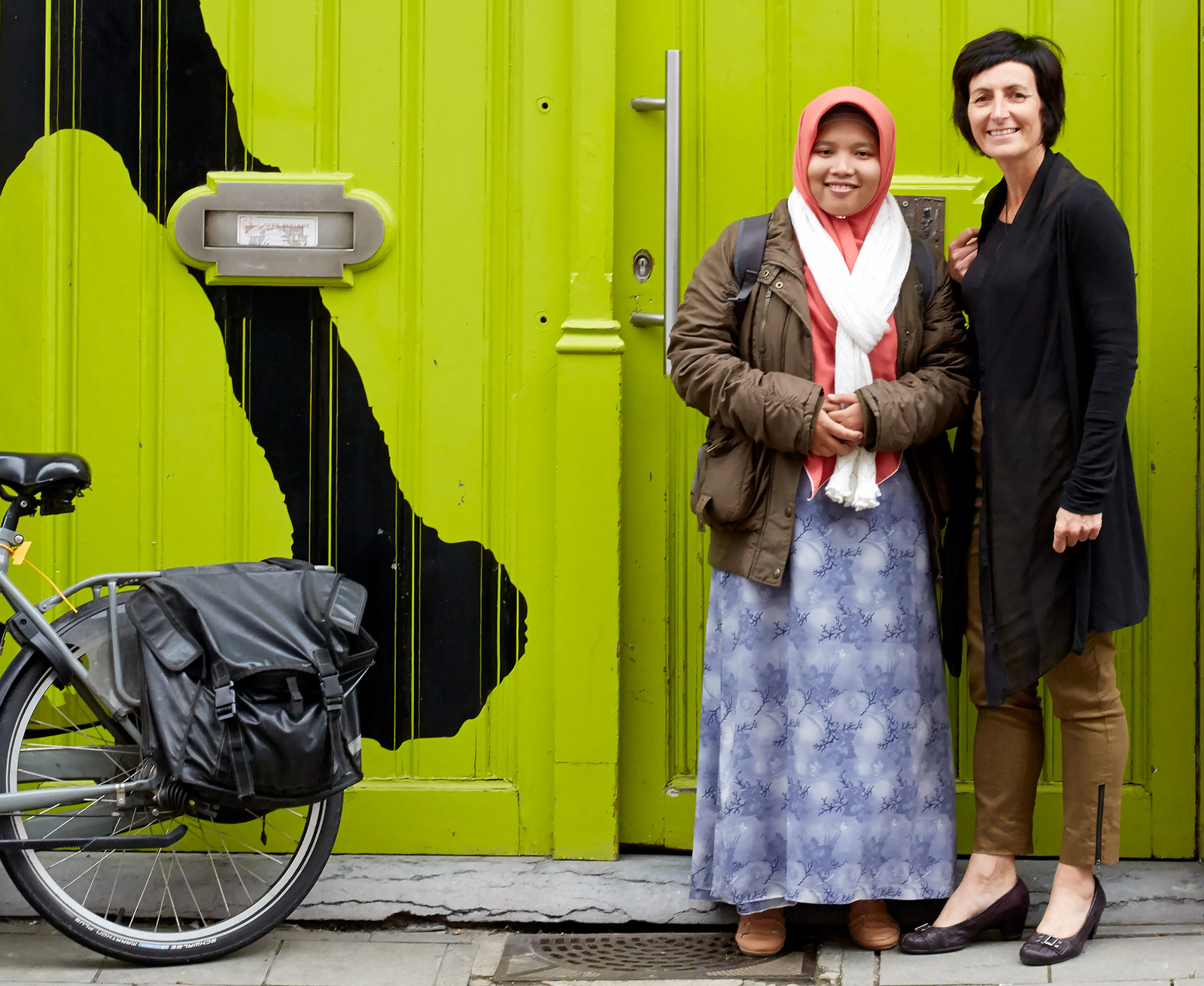
Just before New Year's Eve, I got the message that Iva, our brave last student on work placement, has found a job as 'online staff', which is great news for her and her family. An extra breadwinner makes life just a little bit easier over there. She also wrote that her dream still is to get a master's degree in 'sustainable development', which means aspects of her work placement certainly stuck to her! Great!
I barely had time these past few months to draw up a detailed report of our trip, and making a photo album is also a long-winded work, but I already wrote down a number of things and would like to share these with you, for fear they might fade in time.
What surprised me during the immersion trip?
The hustle and bustle, the incessant flow of traffic, moped drivers, rickety vehicles, usually heavily overloaded, that continuously try to wriggle in between cars ...
Harmony in society: people with different religious beliefs peacefully live together and with each other, sometimes even children with and without head scarf in the same family. The religious composition at school is also very diverse.
Thanks to Sarah (our external intermediary for the project, who is also an Indonesian interpreter and in addition studied Arabic), we also gained a few interesting insights during the trip regarding religion, Javanese habits and do's and don'ts. It made it clear that their religion is a 'steppingstone' to survive; it's embedded in their everyday reality.
Warm-hearted people: you feel welcome everywhere! Everywhere, we were showered with dishes full of local specialties, carefully prepared and very colourful. It's also funny that Western people absolutely have to be on the picture, either voluntarily or involuntarily on selfies.
Furthermore, you are also confronted with the total lack of an ecological approach. At night, all household waste is collected on the pavement and set on fire. Practices that are unthinkable and even illegal here. They have never heard of sorting waste. There's still a lot to be done here.
Which image did I get of the project in Indonesia?
It's a fairly unique project in Indonesia; long-term projects are apparently rather rare.
We have already come a long way; it's not easy to get things done, there's corruption everywhere - we still have a long way to go (needs of the students, schools, education/training of teachers ...).
School boards and teachers are very motivated. They are also sincerely involved in the project's growth and improving the quality of education in general.

What hit me in the testimonies and stories of the students?
They sometimes have distressing situations at home; despite the scholarship the family often has to sacrifice a lot to keep going because having a student at home means one less breadwinner.
The youngsters' social commitment is high, even though they have limited means. Our visit to the orphanage was very confronting. One of the students of group 7 of the academic programme, Aziz, has his 'home' there and together with other students he voluntarily dedicates himself to educate the orphans or organise arts and crafts activities.
Despite a degree, graduated students don't get much further than a job in the factory or store. Wealthier citizens can buy any degree and this makes competition rock-hard.
People who can't find a job often want to set up their own business, even if it's usually not much more than a stall in front of their door.
Amongst alumni (group of students who meanwhile got their degree and did a work placement), motivation is high to get a master's degree, because they hope it will help them to increase their chances and boost their status.
How did these testimonies stimulate me when I came back?
The immersion trip helps me to process and situate the insights I gained (religion, habits, culture etc.) and especially to spread them to colleagues, acquaintances, family. It also helps with the organisation of the work placement and during the student's stay here, to guide the student and host families, give them advice and support them.
It sharpens my critical vision of the North/South and South/South relations and increases my commitment.
It's also mind-broadening: giving presentations is not a standard part of my job and outside my comfort zone, but I don't mind doing it because I realise that we can make a difference for these young people.
Supported by several successful marketing actions, the project gained more attention and I was sometimes surprised by the nice and spontaneous reactions of familiar and less familiar colleagues, friends and acquaintances. They are a sign that the circle is slowly getting larger.
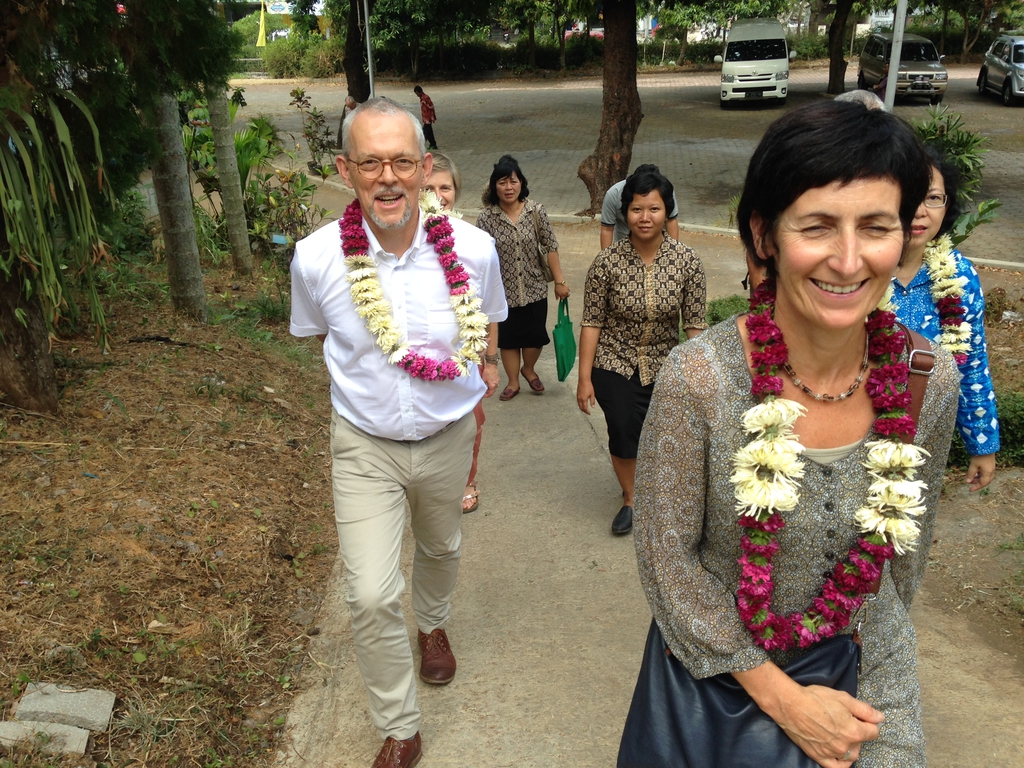
Which possibilities did I see after coming back?
Keep in touch with current students and alumni (earlier classes): creates motivation and also maintains their knowledge of the English language. It's still a challenge to look for other alternatives to make this happen.
A thorough preparation and follow-up of the new students Lia, Isadora, Aziz and Municha (group 7) before, during and after the work placement. Development of contacts with the new host families and of course also keep in touch with the previous host families, who are a valuable resource.
Keep the project alive internally. Similar to the 'ice cream' action, set up new initiatives.
Propagate externally, link with other schools. Explore new possibilities.
Connection with other Collibri projects. Getting acquainted with other Collibri Foundation projects has provided new insights (Burundi and Benin). I can also see possible synergies here. Unfortunately said goodbye to Bas and Benoît; met the new fellow ambassadors.
The possible link with a chain project also gives hope to involve alumni in this.
A lot of good intentions, so it's time to get started!
I hope Collibri Foundation will continue to inspire you and we can go for it TOGETHER in 2016!
Nancy
